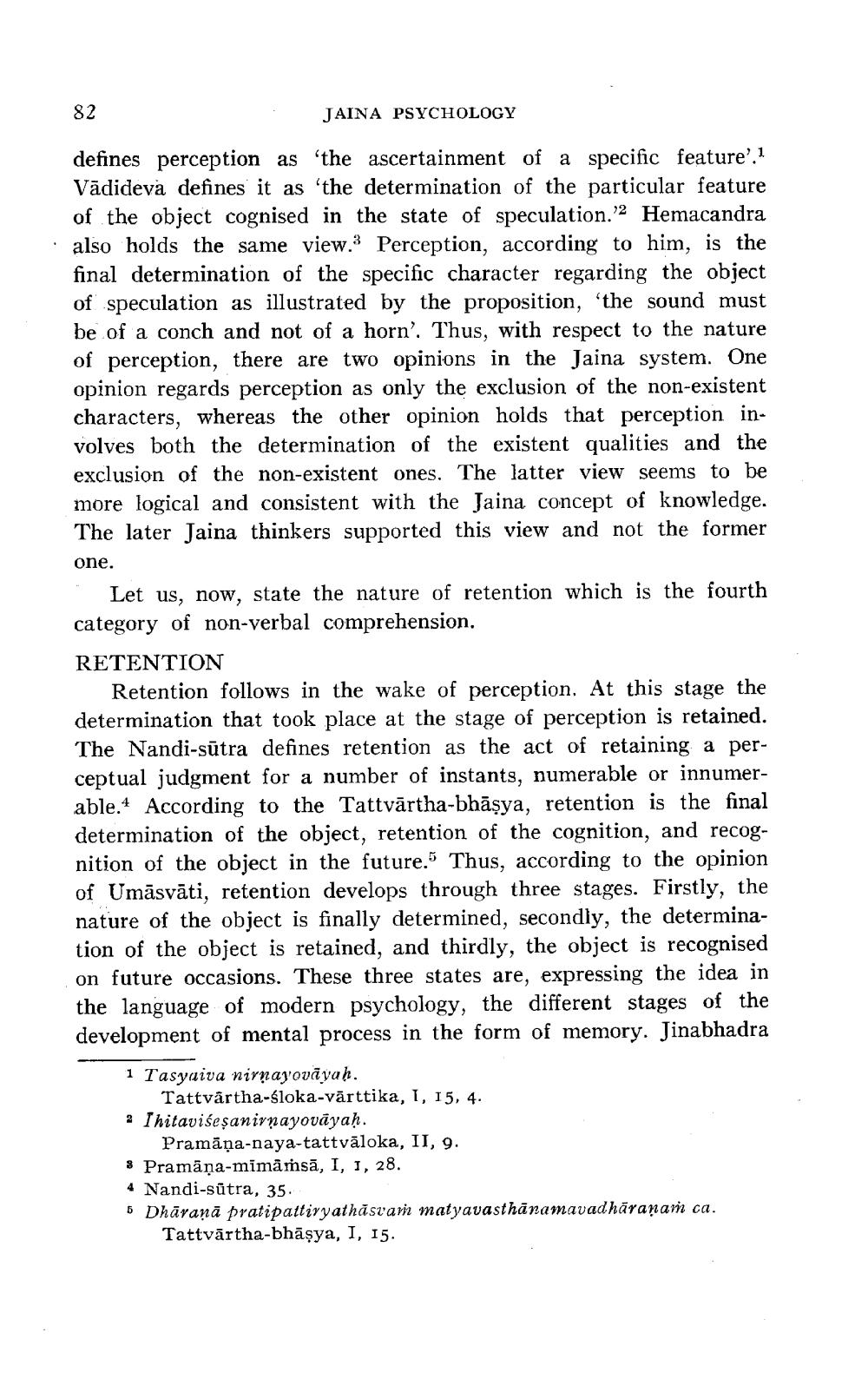________________
82
JAINA PSYCHOLOGY
defines perception as 'the ascertainment of a specific feature'.! Vadideva defines it as the determination of the particular feature of the object cognised in the state of speculation.'2 Hemacandra also holds the same view.Perception, according to him, is the final determination of the specific character regarding the object of speculation as illustrated by the proposition, the sound must be of a conch and not of a horn'. Thus, with respect to the nature of perception, there are two opinions in the Jaina system. One opinion regards perception as only the exclusion of the non-existent characters, whereas the other opinion holds that perception involves both the determination of the existent qualities and the exclusion of the non-existent ones. The latter view seems to be more logical and consistent with the Jaina concept of knowledge.
The later Jaina thinkers supported this view and not the former one.
Let us, now, state the nature of retention which is the fourth category of non-verbal comprehension. RETENTION
Retention follows in the wake of perception. At this stage the determination that took place at the stage of perception is retained. The Nandi-sūtra defines retention as the act of retaining a perceptual judgment for a number of instants, numerable or innumerable. According to the Tattvārtha-bhāşya, retention is the final determination of the object, retention of the cognition, and recognition of the object in the future. Thus, according to the opinion of Umāsvāti, retention develops through three stages. Firstly, the nature of the object is finally determined, secondly, the determination of the object is retained, and thirdly, the object is recognised on future occasions. These three states are, expressing the idea in the language of modern psychology, the different stages of the development of mental process in the form of memory. Jinabhadra
1 Tasyaiva nirnayovāyah.
Tattvartha-sloka-vārttika, 1, 15, 4. 2 I hitavićeşanirnayovāyaḥ.
Pramāņa-naya-tattväloka, II, 9. 3 Pramāņa-mīmāṁsā, I, I, 28. 4 Nandi-sútra, 35. 6 Dhāranā pratipattiryathāsvari matyavasthānamavadhāranaṁ ca.
Tattvārtha-bhāșya, I, 15.




